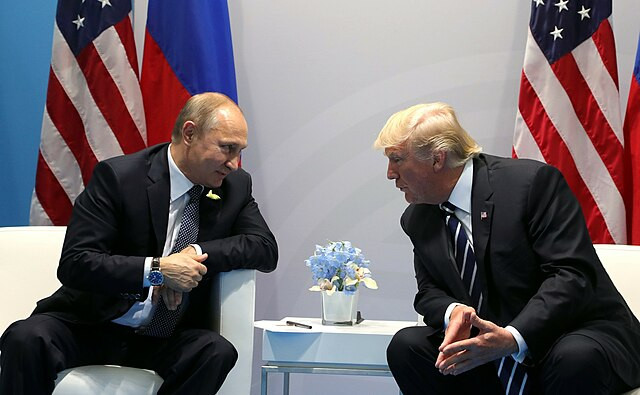Russian President Vladimir Putin has agreed to a partial ceasefire in Ukraine following a phone call with U.S. President Donald Trump, marking the first tangible shift in negotiations aimed at ending the three-year-old conflict. The Kremlin confirmed Tuesday that Russian forces will halt attacks on Ukraine's energy infrastructure for 30 days, though a broader truce remains under discussion.
The agreement came after a lengthy call between Trump and Putin, which the White House said lasted roughly two hours. The move represents progress in U.S.-led efforts to broker a temporary freeze in hostilities, but it falls short of Ukraine's proposal for a full 30-day ceasefire.
According to a White House readout, Russia "will begin with an energy and infrastructure ceasefire," with further talks planned on securing a maritime ceasefire in the Black Sea and a full cessation of fighting. Putin reportedly ordered the Russian military to implement the energy truce immediately, as confirmed by the Kremlin.
Ukraine had already signaled readiness to accept a 30-day ceasefire if Russia reciprocated fully, including suspending missile strikes and aerial attacks. Ukrainian President Volodymyr Zelenskyy, currently in Finland, emphasized that "Europe must be at the negotiating table, and everything that concerns European security must be decided together with Europe."
While the energy ceasefire offers temporary relief, major sticking points remain. Putin's conditions for a comprehensive ceasefire include barring Ukraine from joining NATO, pausing U.S. defense aid, and requiring Ukraine to hold new presidential elections. Trump has not publicly pressed Putin on these demands, focusing instead on outlining territorial concessions, including the status of the Russian-occupied Zaporizhzhia nuclear power plant.
"We'll be talking about land. We'll be talking about power plants because that's a big question, but I think we have a lot of it already discussed very much by both sides," Trump told reporters over the weekend.
Trump's special envoy Steve Witkoff visited Moscow last week, while Secretary of State Marco Rubio has been in talks with Russian Foreign Minister Sergei Lavrov. U.S. officials acknowledged that any peace settlement will likely involve Ukraine ceding some territory and shelving its NATO ambitions, positions that have sparked concern among Kyiv's leadership.
"It's clear to everyone in the world-even to those who refused to acknowledge the truth for the past three years-that it is Putin who continues to drag out this war," Zelenskyy said Monday, adding that Russia had already had a week to accept the U.S.-backed proposal.
In addition to the ceasefire, Putin informed Trump that a prisoner exchange involving 175 Russian prisoners and 175 Ukrainian prisoners is scheduled to take place Wednesday, according to the Kremlin.
Trump campaigned on promises to end the war quickly and emphasized normalizing relations with Moscow. The White House stated after the call that both leaders see "huge upside" in improved ties, citing potential economic cooperation and global stability.
Trump's national security adviser Mike Waltz acknowledged over the weekend that Ukraine would likely need to make territorial concessions in return for long-term security guarantees from the U.S. and Europe. "We can talk about what's right and wrong," Waltz said, "And we also have to talk about the reality of the situation on the ground."
Russia, which annexed Crimea in 2014 and now controls roughly 20% of Ukraine's territory, has also rejected proposals for European peacekeepers and remains firm on blocking NATO membership for Ukraine.






